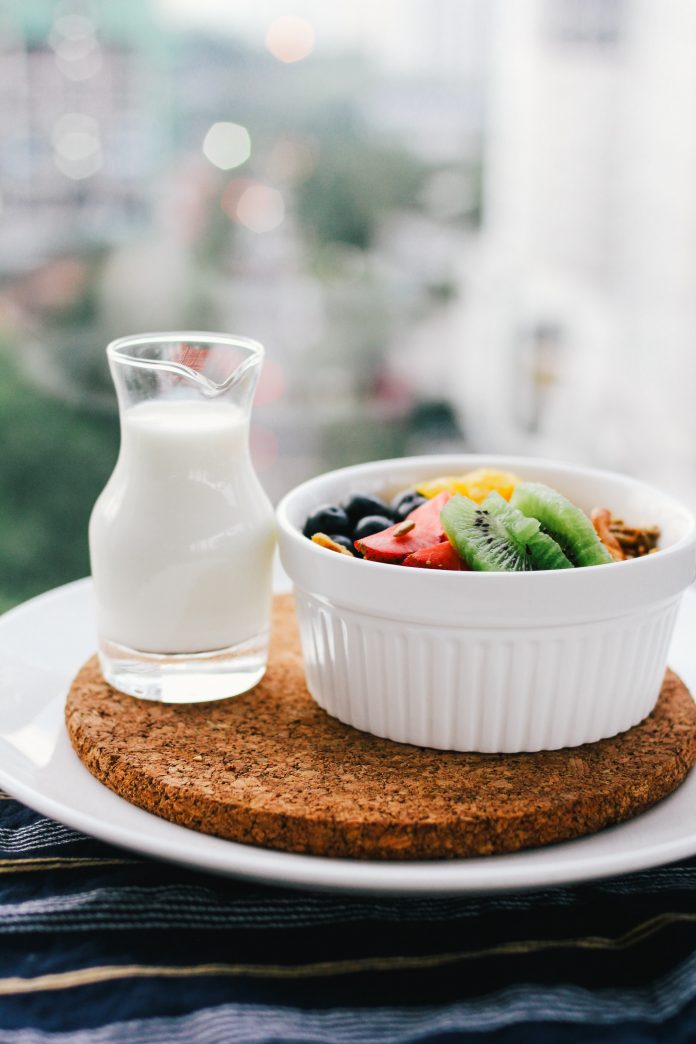
How to keep bones healthy during pregnancy and breastfeeding; Free diet tips in India for new moms

Last night we went out for dinner after a long time to one of the clubs where a karaoke night was organized. On the adjoining table, there was a new mom sitting with a gurgling happy baby along with the women elders of the family. While the mom and baby were happy, the mom-in-law was asking for free diet tips in India for new moms, looking really upset as the new mom was not taking the mandatory two glasses of milk daily. That made me think about the time when I was a new mom and was forced to drink two huge tumblers of milk daily to keep the bones strong and healthy.
It is important to take care of our bones not only as a new mother who is breastfeeding but throughout life. A healthy balanced diet with an adequate amount of calcium, along with some regular exercise is very good for new mothers and their babies. Calcium is important as our body demands more calcium during pregnancy and breastfeeding. The experts recommend anywhere between 1,000-1300 milligrams of calcium daily for pregnant or breastfeeding women.
Calcium is an essential nutrient for women, but some women reject milk due to various reasons. So what do they do? How do these women fulfill the calcium requirements of their bodies? Are there any alternative sources to receive calcium, other than milk? Let us talk about how to keep bones healthy during pregnancy and breastfeeding and the free diet tips in India for new moms.
Free diet tips in India for new moms to get calcium for strong bones during pregnancy and breastfeeding
The first thing that comes to our mind as calcium is milk and other dairy products, like regular curds (Dahi) and cottage cheese (paneer). However, there are various other sources of calcium especially for those women who have milk allergies or don’t like it ethically. If you are recently turned vegan or simply do not enjoy the taste of the milk, here are some alternative options to receive this essential nutrient named calcium.
According to a finding by The National Institutes of Health (NIH), calcium is one of the most plentiful minerals found in our body. The bones and teeth store a major part of it. not only that, but calcium is also found in nerve cells and in our blood. The major task of calcium is to help our body perform various functions such as sending and receiving nerve signals, muscle contraction, the release of hormones, blood clotting, maintaining a normal heartbeat while building a set of strong bones and teeth.
Interestingly, dairy is not the only way for new moms for getting the ever recommended 1,000 – 1,500 milligrams of calcium needed daily. The NIH recommends various other ways and foods through the non-dairy foods in order to receive the adequate calcium needed for the body. Here is a list.
- Dark leafy green vegetables for example spinach, broccoli, okra, methi, mustard, and collard greens. Leaves of cauliflower, colocasia or Arbi, methi or fenugreek, Gawar Fali (cluster beans) are also great ways to include extra calcium on a daily basis.
- Cereals like Brown rice, whole wheat roti, ragi, and Jowar millets.
- Some types of fish like sardines and salmon (though not for vegans).
- Sesame seeds, flax seeds, almonds, and other easily available nuts.
- Soybeans in milk or tofu form and various other beans like rajma, chickpeas, and black gram.
- Various lentils like horse gram (Kulthi), green gram, cowpeas, matki or Moth,
- rajma (kidney beans), whole moong dal (green gram), Chawli aka cowpeas.
- Nuts and seeds like almonds, flax seeds, sorghum,
- Fortified with calcium food items like Tofu and tempeh etc. Calcium enriched orange juice and cereals and bread.
- Calcium supplements can be prescribed as an additional, alternative way to get calcium for breastfeeding moms.
- Learn to read food labels on packaged and canned foods to know how much calcium is in one serving of a particular fortified and enriched food. To learn more about food labels, a great resource is this…
The main reason breastfeeding moms are made to drink milk is because dairy is considered the best source of calcium and it is a fact that new moms need to replenish the calcium as they lose it from their bones when nursing newborns.
It is important to maximize calcium absorption by consuming unmilled and soaked cereals and pulses. Soaking them before cooking is the best way to minimize the phytates that interfere with calcium absorption.
Indian foods for calcium without dairy
I don’t think any Indian woman would not have consumed these tasty treats after giving birth to a baby for the minimum duration of 40 days.
- Soaked almonds and dried figs,
- Gond, til (sesame seeds), and flaxseeds laddoo,
- Sattu paratha or laddoo.
- Coconut in the form of laddoos or in chutneys
- Amaranth seeds in the form of Chikki and coconut milk kheer
- Methi seeds are also a rich source of calcium that is added to fermented batters, laddoos, or in seasonings.
Tips to maximize calcium intake from meals
- Get enough sunlight as Vitamin D is important for calcium absorption.
- Eat less salt as calcium is thrown out by the kidneys in urine along with excess sodium.
- Avoid too much tea and coffee as caffeine in tea and coffee causes the loss of calcium.
- Take a calcium supplement minimum 2 hours before or after a meal to ensure best absorption.
- Exercising, especially weight exercises must be taken up for calcium to be absorbed by bones better.
So that was the best way to get and make use of calcium for the nursing new moms so that they get what their body requires to get back and better after baby birth.



